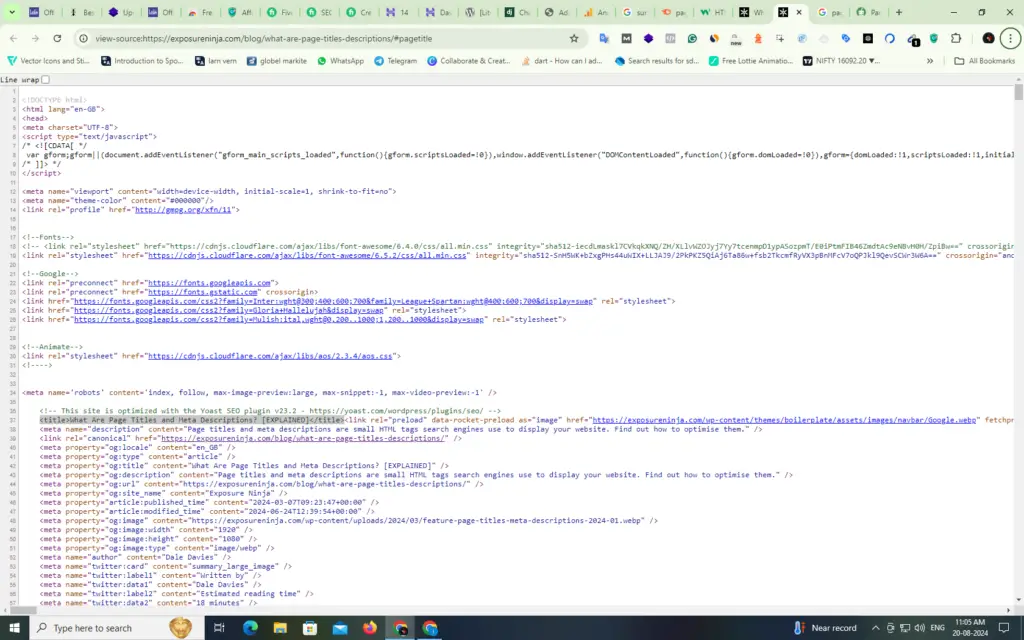They aid in the comprehension of your page’s content by both people and search engines. They help both users and search engines understand what your page is about. Here’s a closer look at each:
Page Titles
- Define the content: The page title tells visitors what the page covers.
- Affects SEO: Search engines use page titles to rank your site.
- Appears in search results: It is the first thing users see when they find your page.
Meta Descriptions
- Summarize the page: Meta descriptions give a brief overview of the content.
- Encourage clicks: A good meta description can attract more visitors.
- Limit of about 160 characters: Keep it short and to the point.
Clear, informative titles and meta descriptions can boost your site’s visibility and engagement.
Table of Contents
A webpage’s titles and meta descriptions show in search results and the browser. These are little bits of HTML code that are present on all websites. They let consumers choose whether to click on the link on the page. These are also known as title tags, meta titles, and SEO titles. To stay relevant in search results, they should be about 60 characters long.
How to Use Page Titles
Little bits of HTML code called “Title Tags” or “Page Titles” are present in web pages’ source code.
They stand as follows.
<title>Here’s the Title</title>
You may use the keyboard sho

Google and other search engines display this title on their search results pages. Then, a user like you can use this page title to assess if the content on the linked page meets your needs. Should the tag for a website say, “What Are Page Titles and Meta Descriptions?” One would assume the linked page gives budget travel tips for Paris.
To find out how probable someone is to click the link to your page, you must optimize this text. Search engines will be more likely to send a lot of traffic to that website the more likely it is that it will happen.
Keep your page names brief. This prevents Google from cutting out vital info. Also, titles must reflect the linked page’s content. If not, users may close the tab after finding it’s not what they need.
Good Page Title Examples
Here are some examples of effective page titles. They are probably well-optimized for search engines and thus see a lot of traffic on each page.

Bad Page Title Examples


Why are page titles and meta descriptions important?
Users prefer less-optimized titles and meta descriptions to their more-optimized versions.
If this page’s title had said just “Page Titles and Descriptions,” would you still have clicked the link? Perhaps, but most likely not.
An explanation of “What Are Page Titles and Meta Descriptions?”
is more likely to be located on the page that is linked to.
Would you click the link if the currency converter’s meta description was, “cars in India best cars in city “? Perhaps, but most likely not.
How much space is allowed for metadata and page titles?
When writing page names and meta descriptions, don’t be too eager. You may have a lot of good things to say about the page you’re optimizing. But, it’s likely that much of it will go unread.
In Google’s example, too-long page title or meta description tags are trimmed. Usually, page titles are reduced to a maximum of 55–70 characters (or 600 pixels).
The range above shows there’s no precise point. The truncation usually depends on the title tag’s word length or the search query.
Due to these factors, we recommend creating page titles that are no more than 60 characters. Also, investigate how titles are shown for your target search query (a “keyword phrase”). This will help you tailor your title to Google’s processing of that query.
Once more, the query determines how long a meta description should be. Since meta descriptions may be cut, keep them to 155 characters.